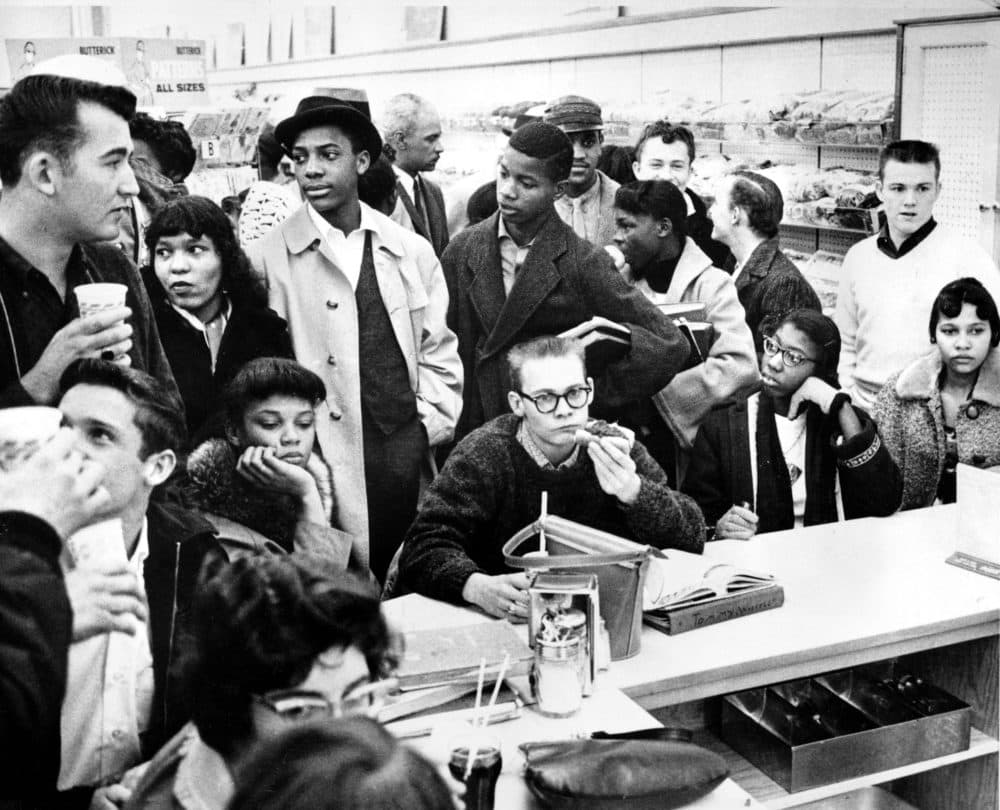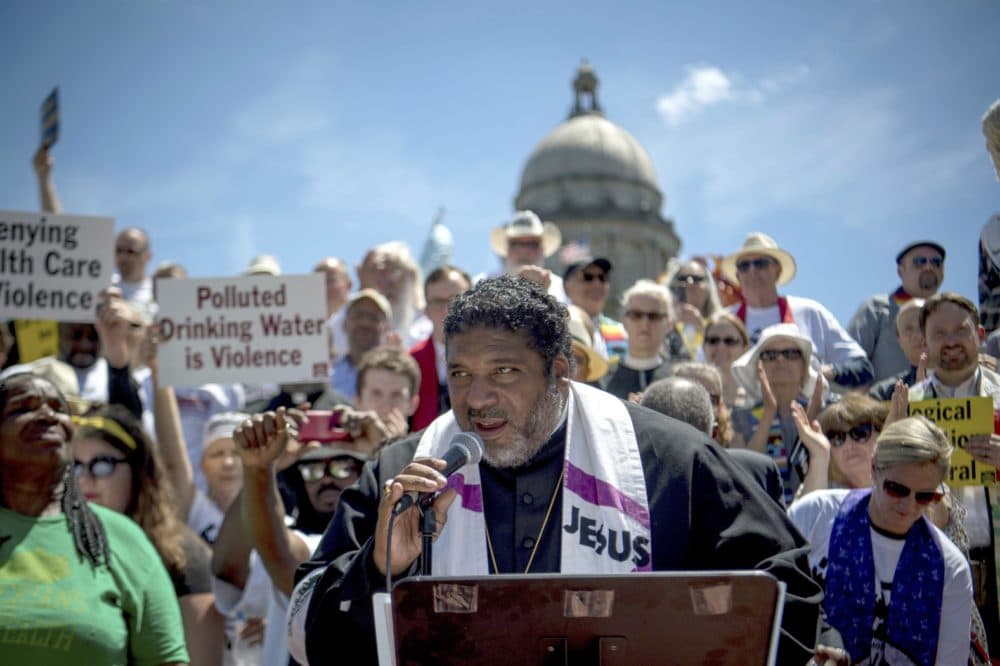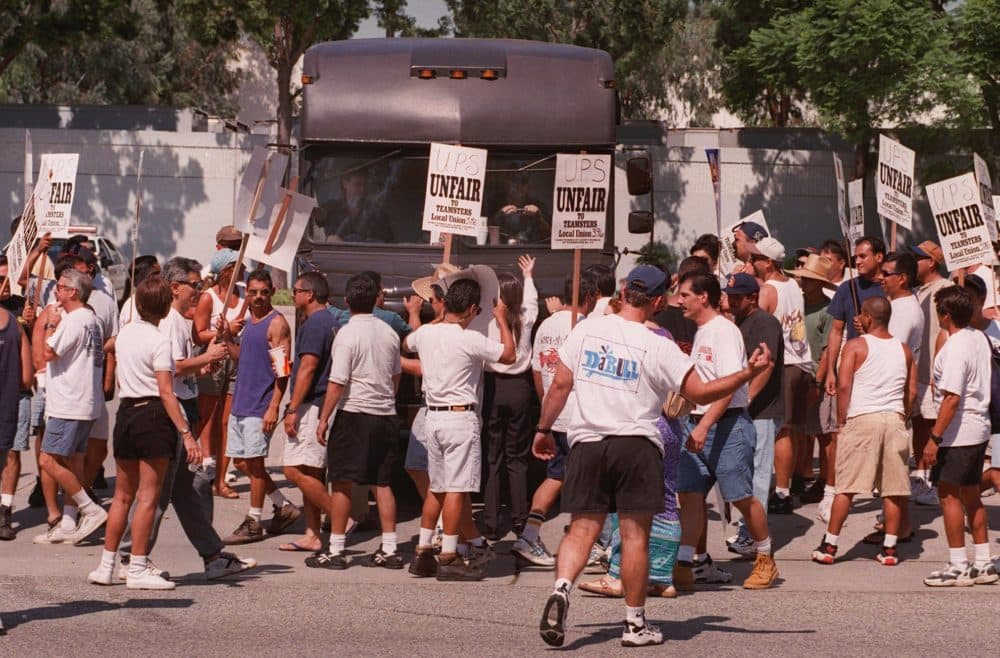Advertisement
Commentary
Voting Isn't Enough

Once it became clear Republicans were going to shoehorn Brett Kavanaugh onto the Supreme Court, a feeble rallying cry emerged from the opposition.
It can be summed up in two words: “Please vote.”
This conclusion — that voting is now the only reliable path to good, accountable government — has been peddled by political establishment figures who oppose the GOP’s far-right political agenda. It’s also a guaranteed sell for liberals and moderates. Voting is relatively easy for those of us who have the privilege of making it to the polls, it doesn’t require much sacrifice, and generally speaking, it rarely threatens the standing of the members of our leadership class who manage our voting system.
But there’s one serious problem with the premise that voting is our only recourse — it ignores the reality of how progress has been achieved over the course of U.S. history.
... the powers and freedoms that have been won by our most marginalized sisters and brothers did not come from voting alone.
When you look at the turning points of America’s centuries-long evolution from a fiefdom of white male aristocracy to the present (when the white male aristocracy is fighting viciously for ongoing dominance) you’re quickly reminded that the powers and freedoms that have been won by our most marginalized sisters and brothers did not come from voting alone.
The rights to vote, to unionize, to gain equal access and treatment, came to pass largely because people grew loud enough to disrupt everyday life, which frightened the powerful and compromised their power.
We did this by waging sustained and organized activism that often pushed the limits of laws that are now viewed as unjust. When Americans of color sat at whites-only lunch counters and refused to move to the back of buses, they were not only breaking the law, but confronting the very power that rules America today. The same can be said of the suffragettes who picketed the White House in 1917, when women weren't allowed to vote. More recently, this kind of morally-charged civil disobedience was adopted by more than 185,000 mail delivery workers who went on strike in 1997 (and won) to demand better pay and employment terms.

Engaging with power is in our heritage. Imagine what could have happened if we hadn’t all gone home after the women’s marches, if we weren’t debating the ethics of civility, or if millions of us went on strike like the teachers in West Virginia did this year.
Reverend William J. Barber II has done more than imagine it. He played an authorial role in leading North Carolina's "Moral Mondays" protests against Tea Party politicians. These protests promoted solidarity and fostered hope among disaffected voters, which helped Democrats win several offices — including the governor's seat — in 2016.
Last year, Dr. Barber resigned as president of the North Carolina's NAACP to lead a revival of the Poor People's Campaign for economic justice that Dr. Martin Luther King, Jr. founded shortly before he was murdered in 1968. The MacArthur Foundation recently awarded Rev. Barber a Genius fellowship for his work "building broad-based fusion coalitions as part of a moral movement to confront racial and economic inequality." He was arrested at a union rights demonstration in Chicago on the same day that he received the grant. Rev. Barber’s activism provides a modern-day example for how we might walk in the footsteps of our ancestors to confront the cruelty and greed of oligarchs like Donald Trump and the Republican Party’s mega-donor class.
Why aren’t we talking about these forms of resistance in addition to voting on November 6th and in every subsequent election? Especially since we know red states enjoy much greater representative power than blue states, and that our campaign finance laws allow people like the Koch brothers to pump obscene sums of money into the campaign war chests of far-right politicians. It will take many election cycles to address and repair the GOP’s decades-long efforts to suppress democracy through gerrymandering, voter roll purges and stacking the courts with conservative activist judges.

It’s a negligent idea to invest all our hopes for the future in this unfair and broken electoral system.
Declarations that the 2018 midterm elections are the final chance for America to avoid total collapse are not only ludicrous, they’re a serious disservice to people who are looking at the landscape and asking, “What can we possibly do to make a difference?” The possibilities of what we could do, in addition to dropping ballots at every available opportunity, are as limitless as the scope of the human imagination.
Here’s my suggestion as we enter the last few weeks before America’s midterms. Instead of reading Tom Friedman’s latest ivory tower perspective on the mechanics of political power, pick up a book by Noam Chomsky or Naomi Klein — both of whom spent their lives chronicling the history and gains of organized (and bold) activist movements in America.
Instead of looking voting as the end-all, be-all of resistance, consider it a necessary piece of a larger strategy — like ripping out moldy drywall so you can start to truly rebuild a house.
Dr. King famously said that “the moral arc of the universe bends towards justice.” I believe he’s right, but there’s an implication in his words that some of us seem to have forgotten today.
Bending that arc is our job — and to do that, we need to use all the proven tools at our disposal.
